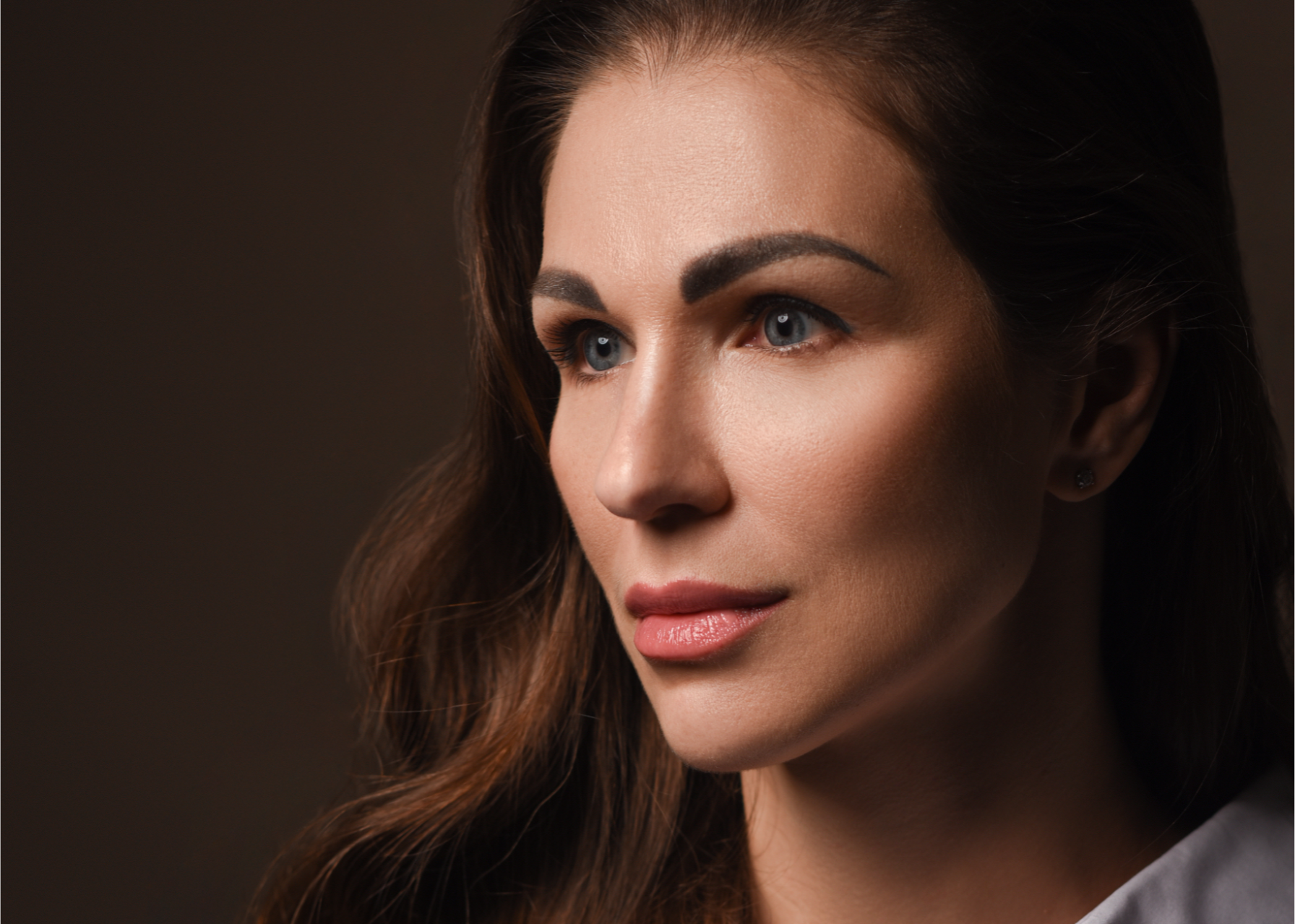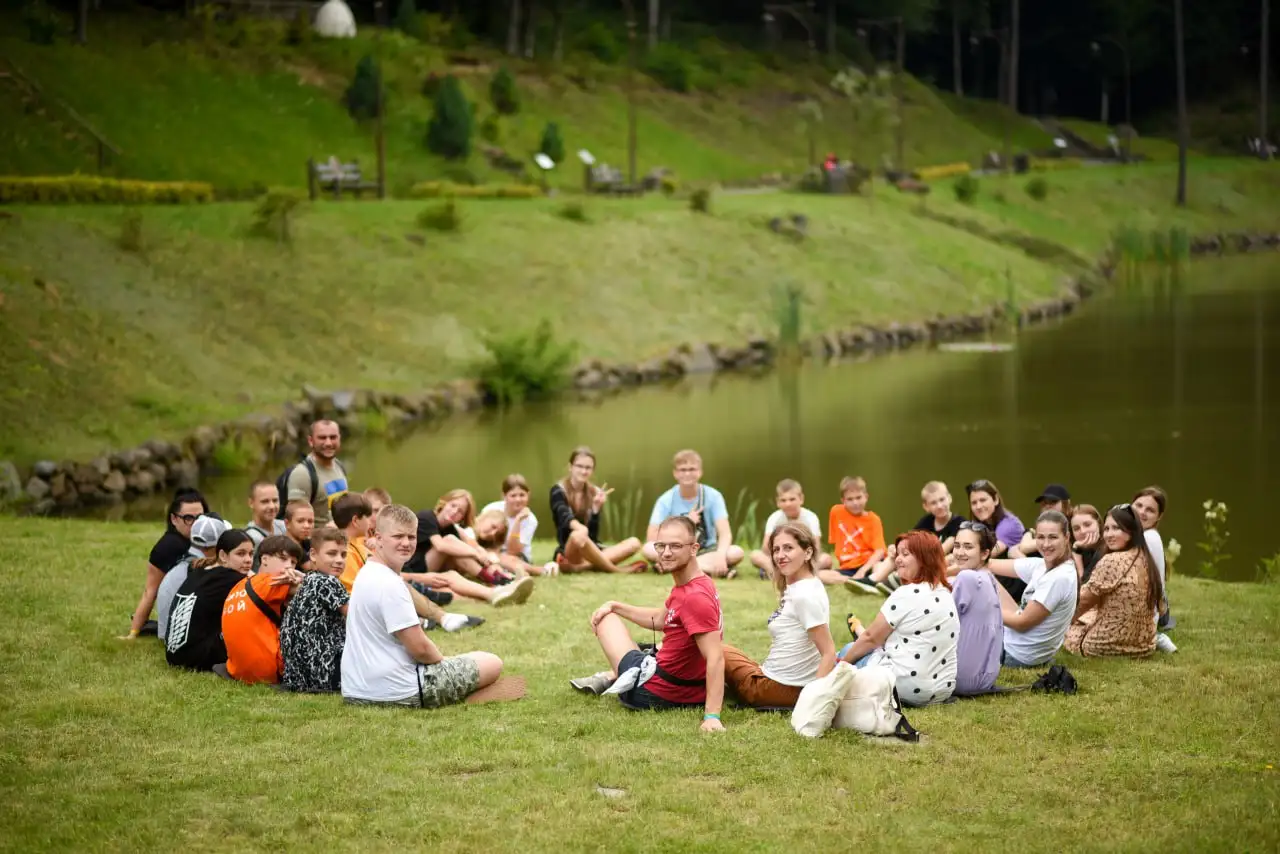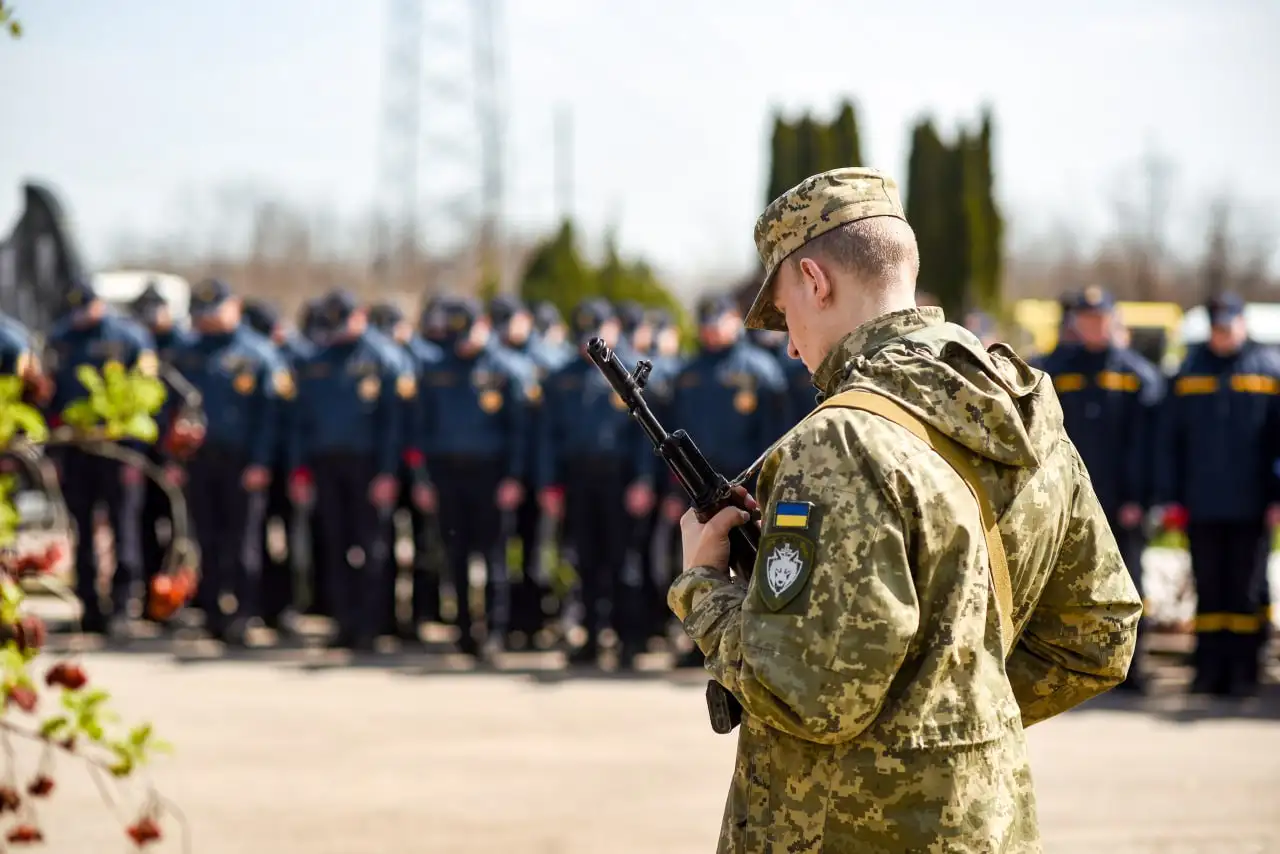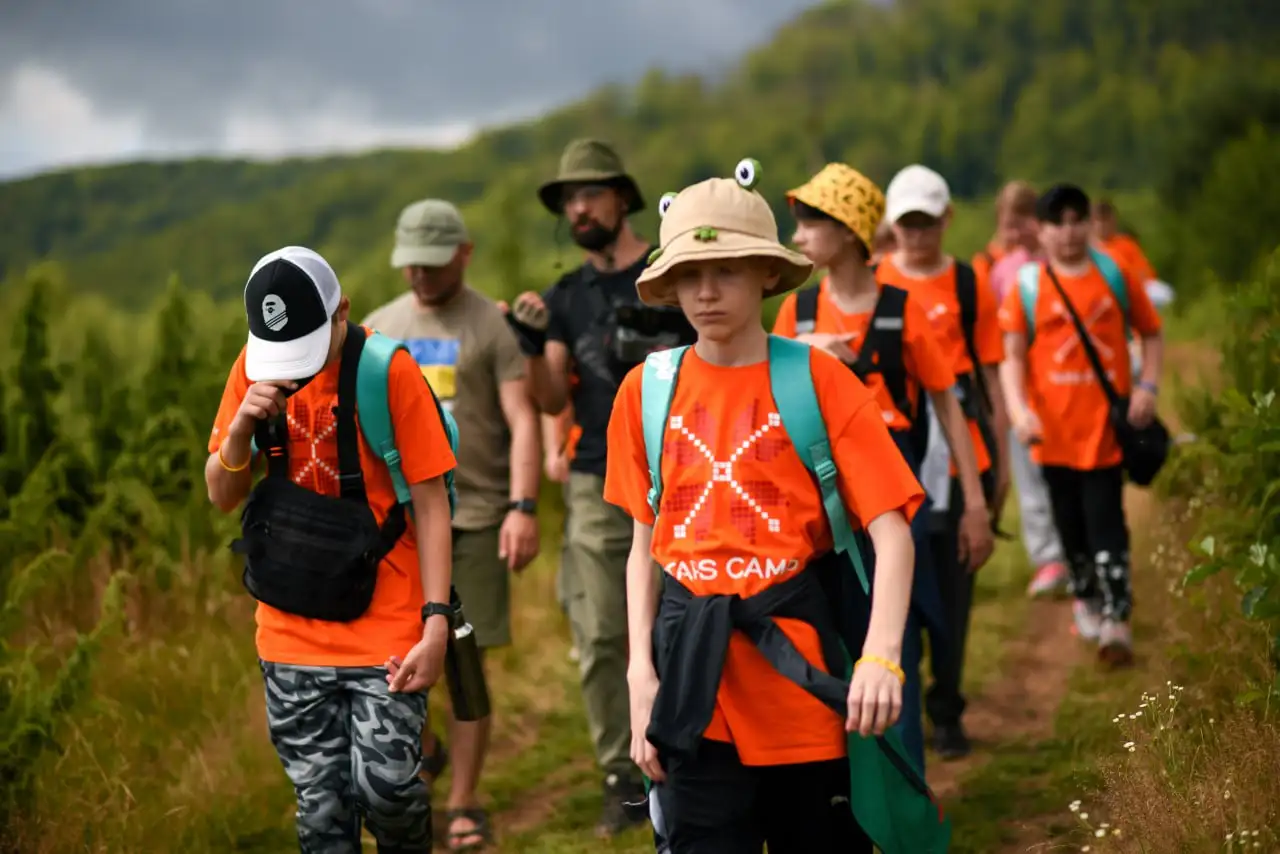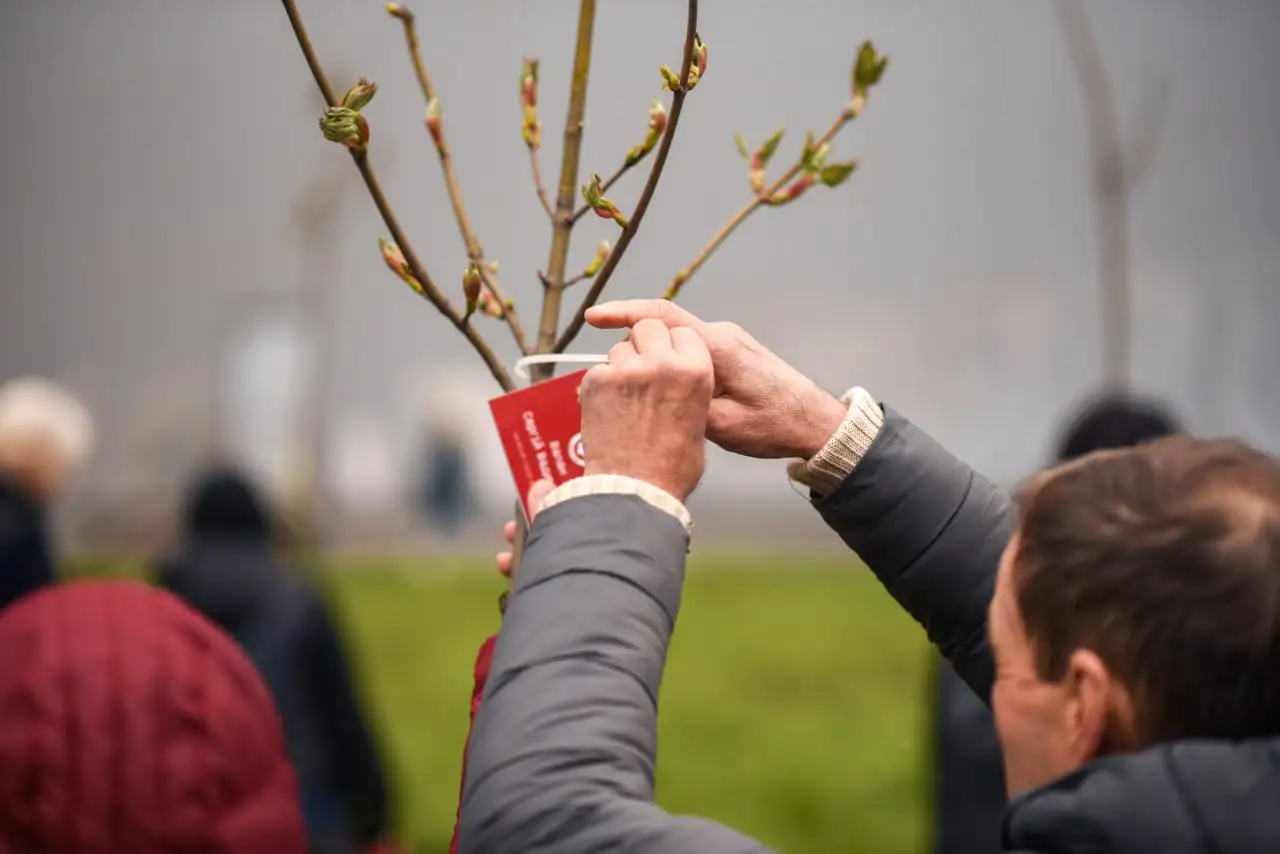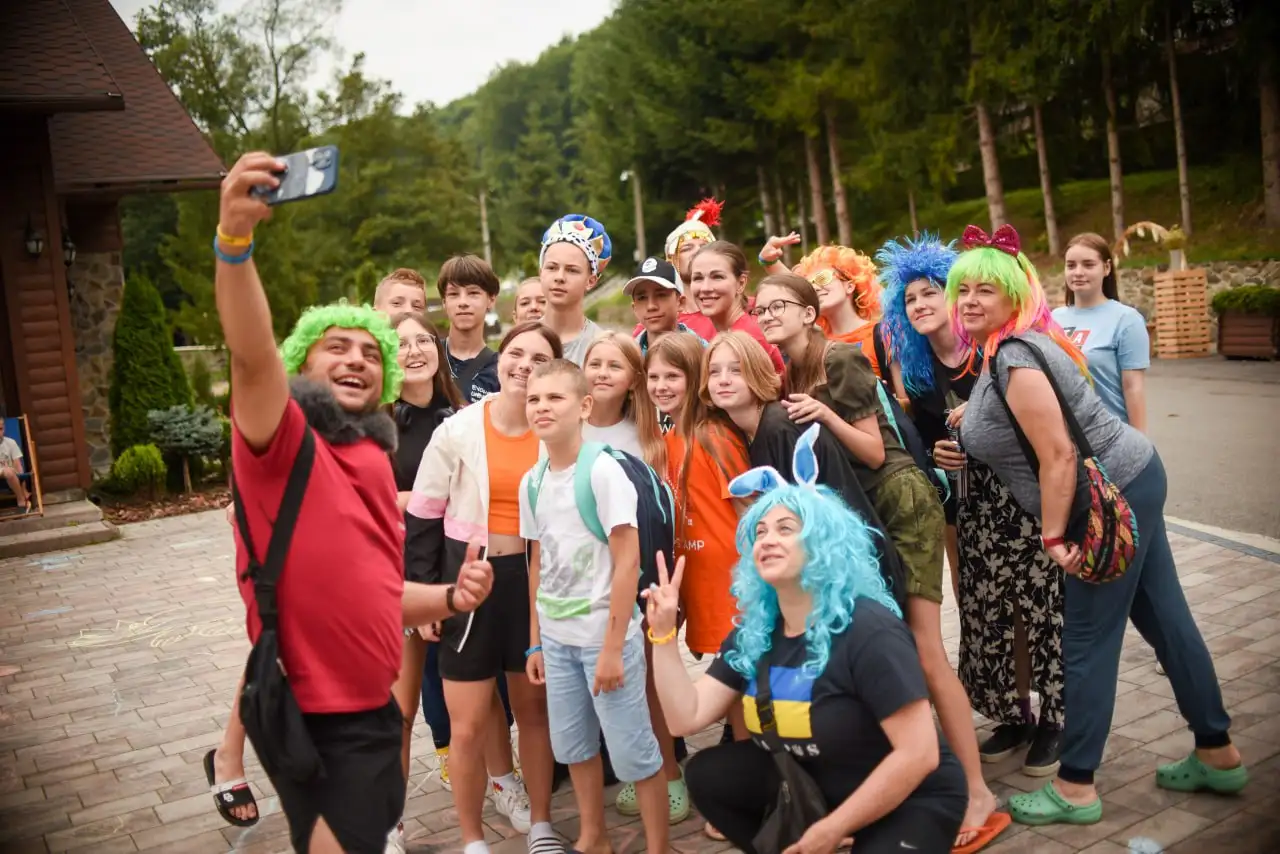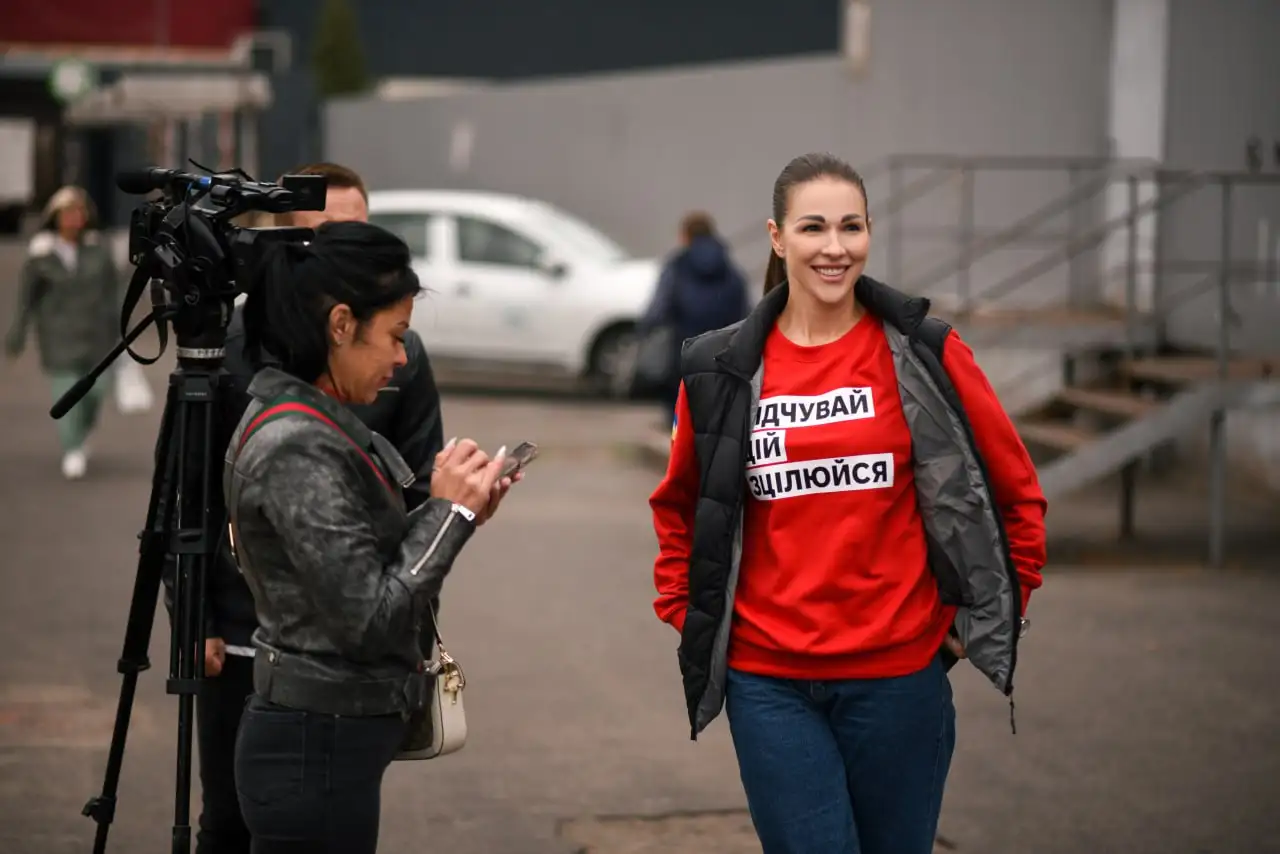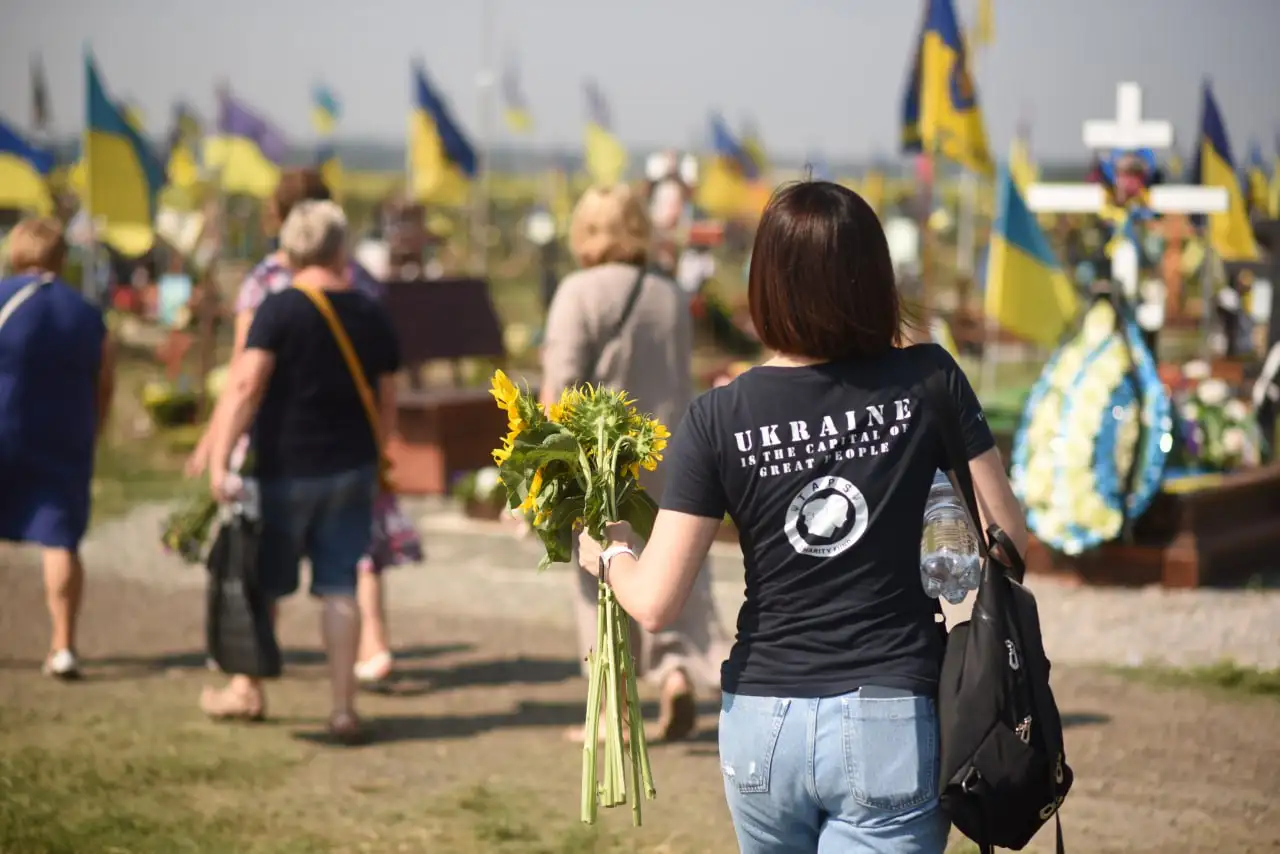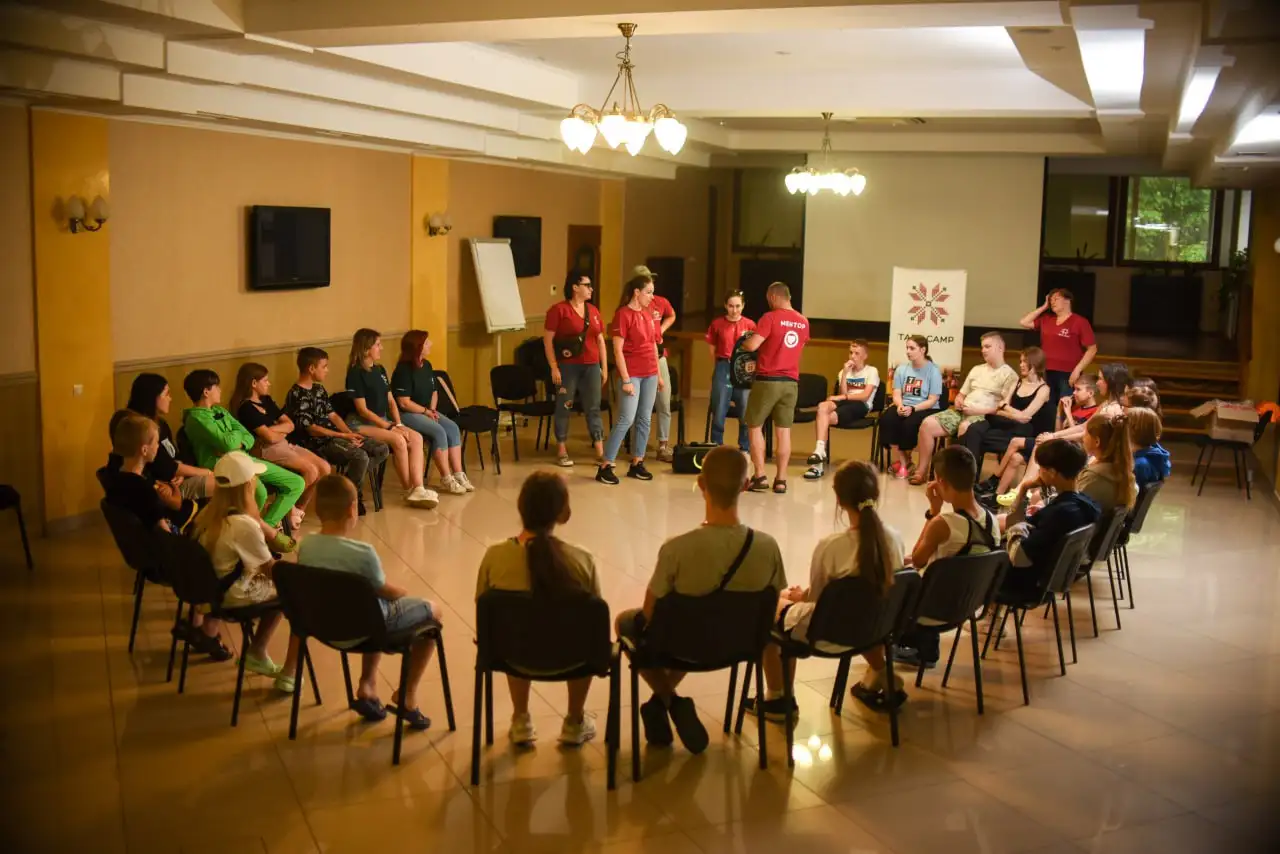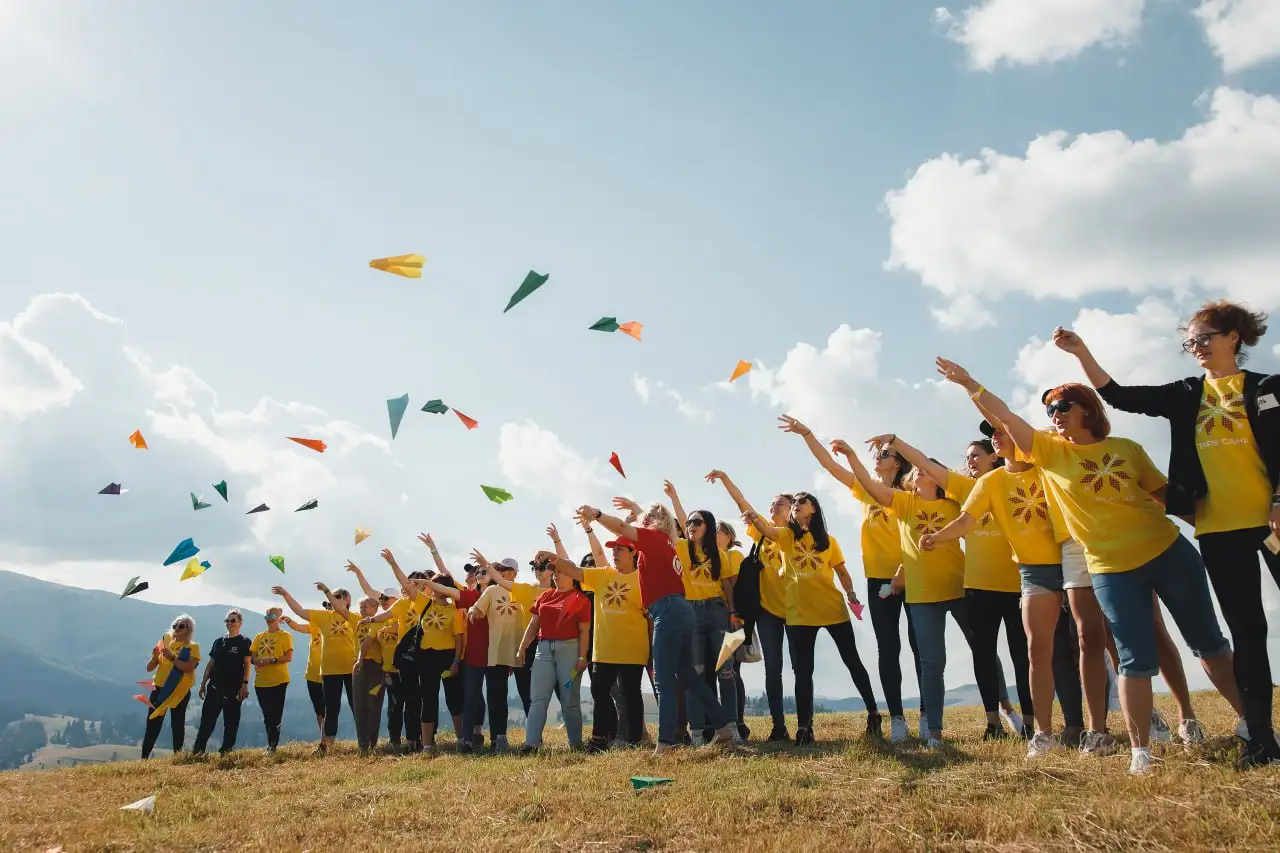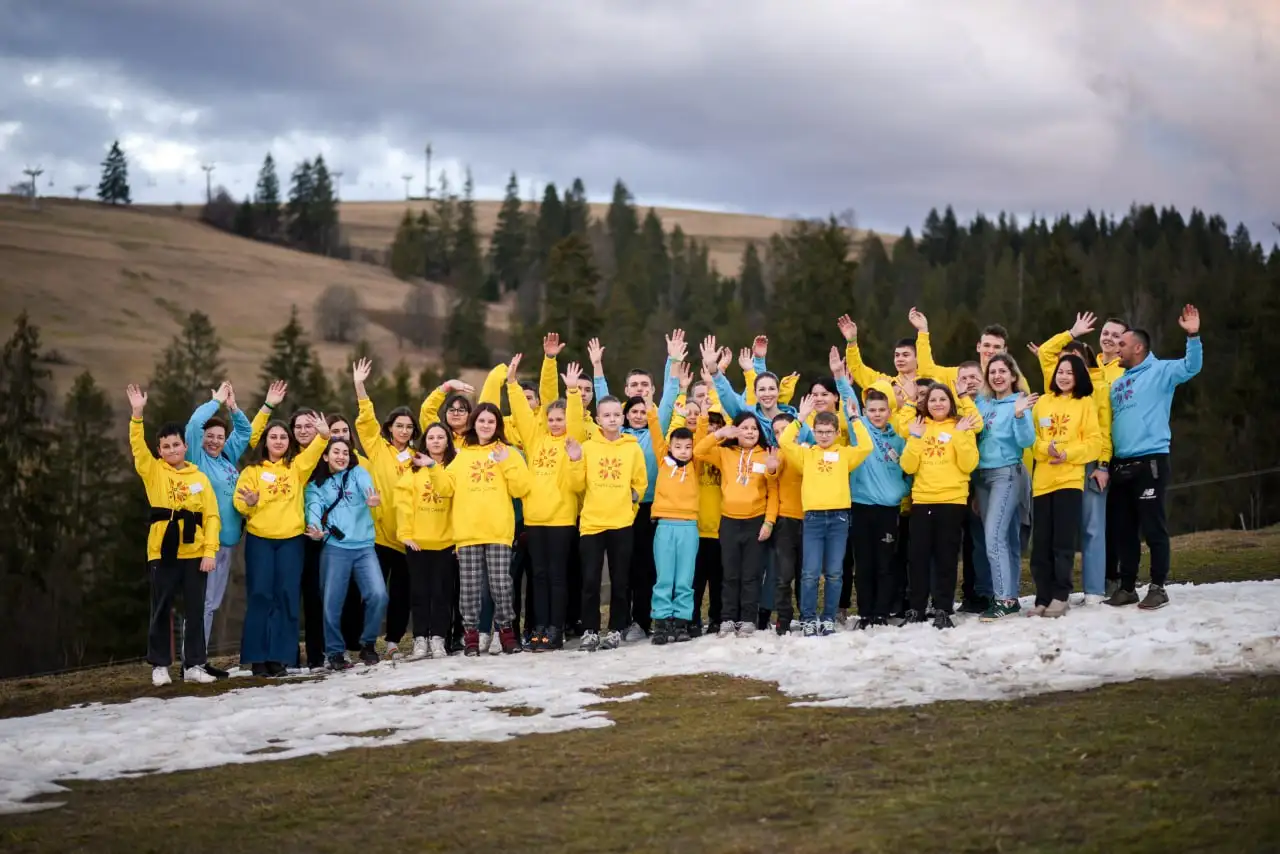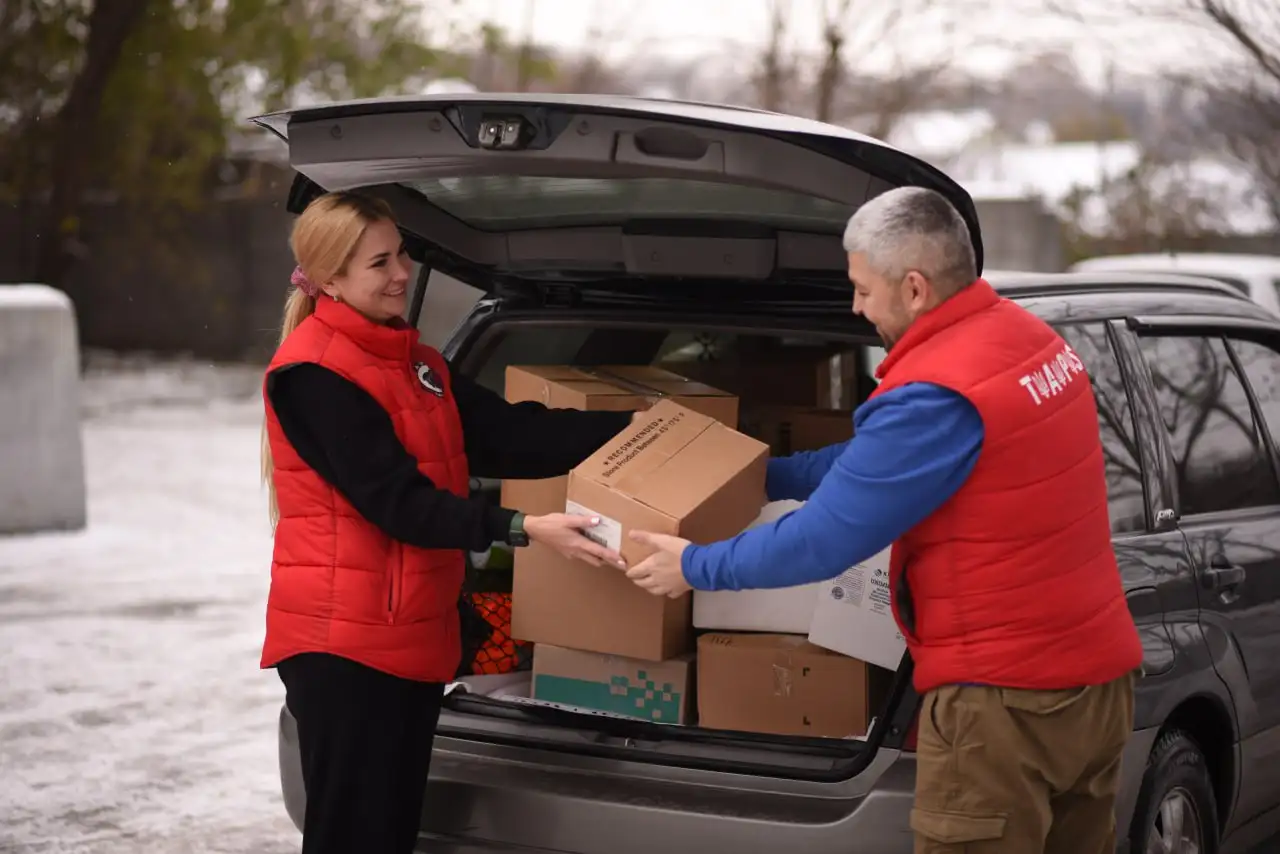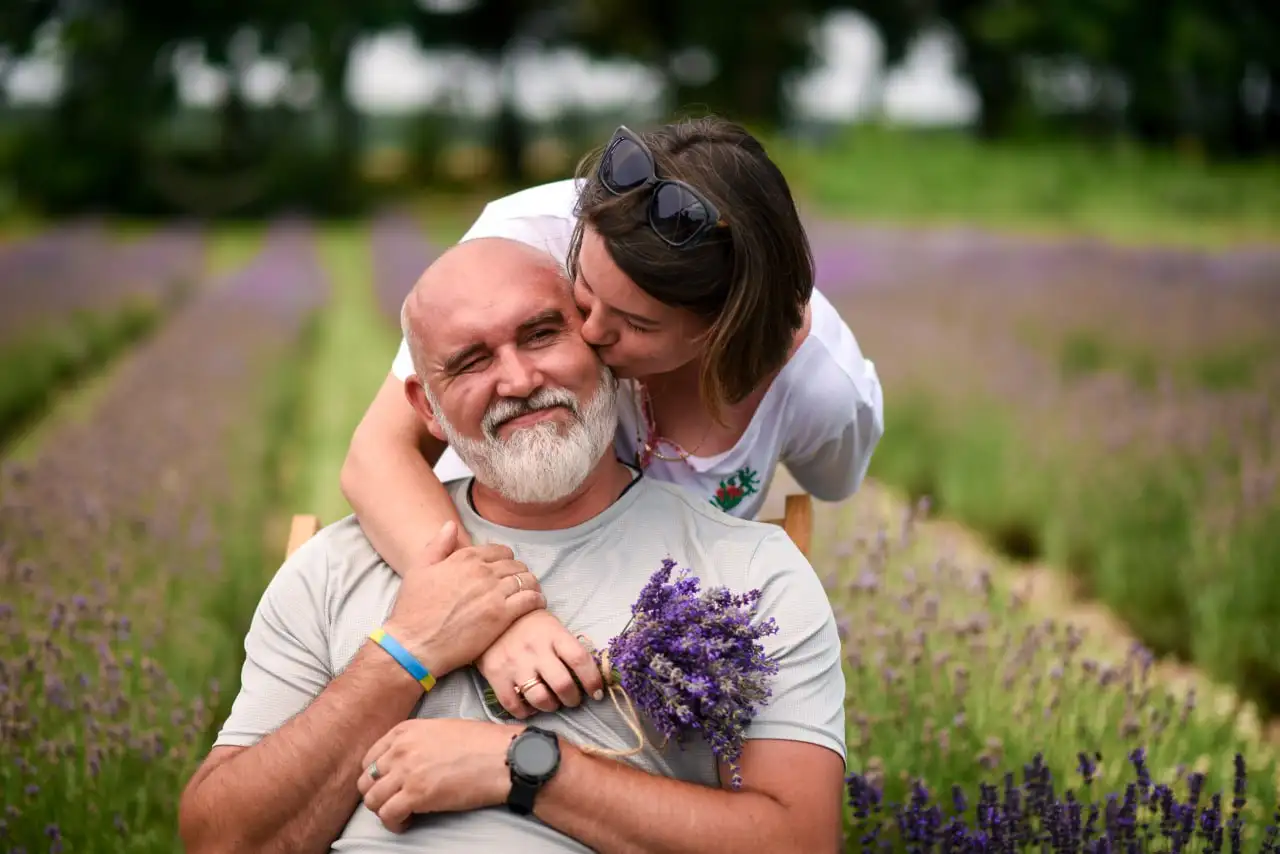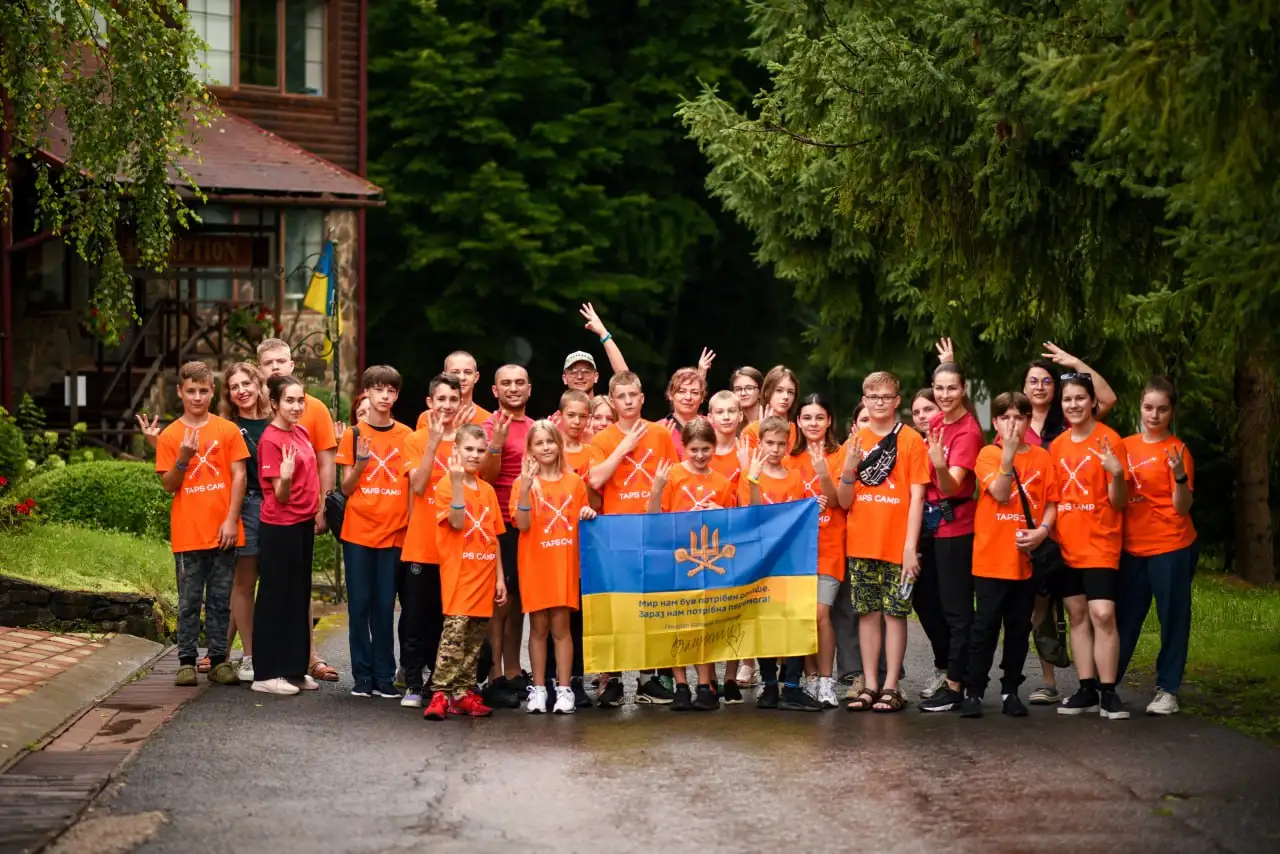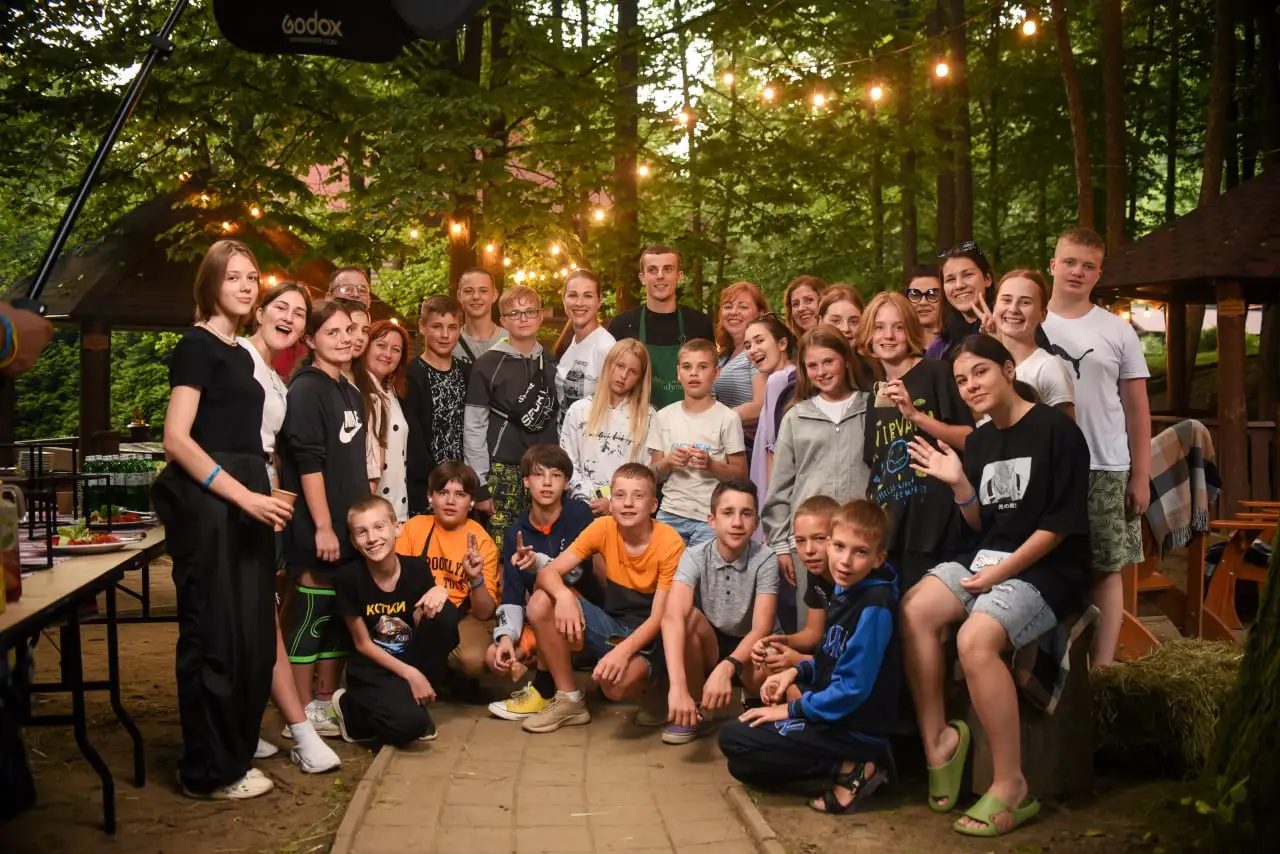For your attention, an interview with the head of the TAPS Foundation, Yulia Dmytrova.
We are diverse in our activities, we do not have the template that many organizations follow: “get money - buy - give - take a picture” or exclusively psychological support. We encourage families to work together, form a kind of unit of thought leaders, future public figures and mentors from our children. We are happy when mothers or fathers offer to take on the task of holding some meetings or master classes. We create an atmosphere of inspiration, a kind of oasis in which people want to live on and look for different activities, come up with events or strive to learn something new. This is called thinking “outside the box”. Since 2018, there have been many organizations that have tried to deal with the families of fallen Defenders, but they have already closed. Because in this area, it will not work to simply say goodbye to a military person and provide humanitarian assistance. In addition to the basic one, we have another type of assistance, namely, engagement in interaction with those who have the same experience of experiencing “war loss”. For the long term of such work, a clear strategy for a year or two is needed. We have it, and we are constantly improving our knowledge and projects.
1) Tell us about your volunteering journey and the decisive moment when you focused on the topic of helping the families of fallen Heroes?
For me, it all started in the spring of 2014, when pregnant IDP women from the East began to come to us en masse, who gave birth in local maternity hospitals (Dnipro) and had nothing - neither things nor products. Later, I switched to military volunteering in the summer of the same year, when the first wounded defenders from Zelenopillya began to be evacuated to Dnipro hospitals. Of course, we made friends with many servicemen, because we traveled a lot to the ATO zone (that's what military operations in the East were called back then), and later - with their families, wives, parents and children. The families trusted us and always handed over parcels for their servicemen. And when we faced the first losses in the battalions we provided (20 BTRO and others), it was incredibly difficult and painful, but who, if not those whom the soldiers' relatives trusted, could inform them about the death of their relatives and be there from the moment we reported the difficult news to the final burial rituals, and from then on I continued to communicate almost as a psychologist. This is what I dedicated my life to, working in such a difficult topic for 10 years. For some, I became a friend, for some - almost a part of the family. It is a great trust and a great responsibility to become a support for those who have lost their dearest.
In fact, ten years for me and my family is like one big long day that never ends. Frankly speaking, I don’t even remember how you could live the normal life you had before, without worrying every day about your three children and their future. In general, it’s hard to imagine how you could live without worrying about tomorrow or tonight, when we hear again and again about missile carriers in the airspace and about the next explosions in almost any part of the country. It’s difficult to make any plans, and we have to live here and now. If before the full-scale one we still lived with dreams of a quick victory, the thought arises that we had to either implement our plans faster or change the country. However, I could not and will not be able to make this choice, like my husband, because many people who felt fear and confusion on February 24 are counting on my support. I wanted and want to return normal life to our country, an independent country, without war. My dream is to pave this path and see with my own eyes how Ukrainian children continue to be Ukrainians on their land, filling their lives with new meanings, building the society that we all dream of. Therefore, the primary task of all adult Ukrainians is to defeat the enemy and give the next generation a life without war, without new losses...
2) In 22, you and your team did an incredible project that was not just necessary, but unique - a headquarters that numbered over a thousand volunteers. Why did the Dnipro Volunteer Coordination Headquarters (KSHVD) end?
On the morning of February 24, we began to do what we had been able to do for almost 9 years, but on a larger scale. Personally, I learned to unite people around me. And people who had been volunteering since the 14th were also able to support this initiative and began to unite in different directions when such a terrible disaster came. This was necessary, firstly, to somehow curb fear and cope, and secondly, the understanding that victory in this war is our last chance to become a nation was quite inspiring. It is easier to beat your father with a group - there is such a proverb. In this case, it is a neighbor, treacherous and cruel. That day, in a few hours, we did something extraordinary, large-scale, unique… I am still amazed. I had no doubt that this phenomenon would turn out to be a “headquarters of headquarters”. We gathered 1,600 volunteers who worked like bees for almost a year and a half: loading humanitarian aid from trains and trucks, preparing tens of thousands of portions for the front, packing animal feed, evacuating people from hot spots, meeting and resettling hundreds of families. Today, the Dnipro Volunteer Coordination Headquarters, or “KSHVD” for short, has ended in the form it was. And this is an absolutely natural process, because people cannot be together and do the same thing for more than the specified time. Everything changes, and so do the needs. Someone grows up to create their own organizations or communities, someone forms their own units in areas, or due to health conditions, they could not continue volunteering. There are many areas that have been separated into separate associations: the production of front-line showers or burners, weaving camouflage nets, medical services, assistance to IDPs, evacuated animals, someone left the country, some left volunteering and joined the Armed Forces of Ukraine. We returned to our initial priorities - support and assistance to the families of the fallen Defenders, and began to develop projects that we initiated in 2018, when we first met with the founder of the international organization TAPS USA, Bonnie Carroll. These are forums, camps, support groups, trainings, etc.
4) How does the USA contribute to the work of the branch, tell us about partners, ambassadors and sponsors? In the conditions of the ongoing war on charity, it is increasingly difficult to find money, how does the foundation do it?
95 percent of any support comes to us from the USA, which supports us not only financially, but also with consultations, advice, personal visits to us. And, I really believe that while the war is going on, they will remain by our side. As for other finances, despite the difficult times, we are very actively helped by representatives of Ukrainian business, well-known brands and corporations, who help with gifts for significant holidays or support our events for families.
The lion's share, of course, is grant projects, money for which we receive from other countries. In a few years, we have already created an effective grant history, and people trust us. Our ambassadors are two key people who are very motivated, and by their example they can encourage our children and adults to new achievements, because they lead a very active lifestyle and are constantly inventing and implementing something. The first is the famous restaurateur Oleksandr Varava, the second is a young climber and designer, who support us and give wide publicity to their circles of communication about our tasks and challenges, being able to explain how important it really is to take care of people who are experiencing war loss.
5) Tell us about the team, about the changes in the team. They say that in order to effectively achieve goals, the team should be updated every three years, because some people get tired, others see new vectors of development, someone feels undervalued?
Changing the team and partly the management is also a natural process that any large company needs when it comes to improving results and initiating new projects. The process of transitioning from the status of a "volunteer" to the status of a permanent and responsible team member is not an easy task. And it is no secret that volunteering, no matter how difficult it is, can be stopped, taken off responsibility, because there is no time, desire and resources to continue working. Therefore, as the head of the fund, I suggested taking certain people to areas and being responsible for their implementation, because I want to see results within certain deadlines. So, someone took control of their work area and was able to show results, even without having a certain experience, some find it difficult and cannot cope, and some believe that they have already reached a higher level of professionalism, but at the same time did not do their job. Therefore, someone left, someone new came to the team. New people who are burning with ideas are also interesting, because they can make new proposals and points of view, new ways to implement the fund's strategy. And we should not forget that we work with a very vulnerable category and topic, so the team must first of all form loyal, warm and helpful relationships among themselves. And even despite healthy competition, the conflicts that accumulate must be worked out. We have internal trainings and our own psychologists for this so that burnout does not occur. There is great competition in the field of charity in Ukraine, and my task is to train such personnel who know how to properly work with the topic of war loss, so that families turn to us as top-level specialists, receiving support and assistance.
It is important to say that in 2013, a lot of foundations and public organizations were created that began to work with the topic of war on a hot wave, but war is not hype and a trend, war is horror and constant traumatization, both for the military and their families, and for civilians, and in order not to manipulate such topics, you need to constantly learn and improve your knowledge in the field of psychology, team building, management and communications, be able to properly talk to people who are fighting or who have already lost loved ones. And this is work for years.
We already have experience, but no one knows what other terrible things we will encounter over a certain period of time. One of hundreds of examples - the explosion on Peremozh in our native Dnipro in January 2023 was terrible. The rocket hit a high-rise building where our volunteer also lived. And although at that time the headquarters was trying to survive on its own in conditions of blackouts, there were almost no resources and time, we were the first to arrive there both as volunteers with food and drinks and as a psychological tent. Just then, mobile mobile offices were brought to us, in which you can work when there is no light and heating. Everything was done in a matter of hours, or maybe minutes. And this is the result of the coordinated preliminary work of the team, when in an hour we were able to collect a truckload of humanitarian aid to a hospital in another city that had been shelled or hit. For me, the team is a second family, and if someone decides to leave, I treat it normally: someone wants to go free swimming, which means they need to let go, and someone, on the contrary, wants to stay. The main thing is not to keep your problems or desires quiet.
6) The foundation already has its own official home, and will Bonnie Carroll (president and founder of TAPS USA) be coming for the second time in a year?
Having a home at the foundation is a great pride for the team. Because they believed in us and allocated funds to purchase the TAPS house. We call it the office of resilience and our own home, because for families it becomes exactly the kind of place where you can find support at a time when your own home is empty due to the loss of loved ones.
It will also become a training center, in the work of which we plan to involve other organizations that deal with the same topic, a gym, a psychologist's office, a location for youth meetings, and a hall for cultural events are being created here. Bonnie Carroll is much more than just the founder of TAPS in the USA, which includes 53 countries. For us, she is a friend and part of our community, which tries to take care of us and our families no less than we do ourselves. She wants and will come to Ukraine when she has free time. Her words and presence at events have a very positive impact on families. We will soon have a large video interview on our website in which she talks in detail about how and why she can and wants to support the activities of "Taps" in Ukraine. She is incredible and shows with her actions which light to go to in the darkest times.
7) Tell us about the international partnership and the prospects of the Taps Foundation for the coming years?
Now you can’t plan much, because there is a war going on. But, in my opinion, international partnership is the most promising not only for our foundation, but also for our country in general, in the current conditions, when the state budget is directed to military support, and business in the country is in a state of crisis. This applies to any sphere: culture and social initiatives, medical support, the sphere of education and the implementation of public initiatives. So, this is currently the only possible and successful partnership that can support the non-profit sector quite intensively and for a long time. And then the level of contributions to the project depends on the quality of our initiatives, which we have been implementing for many years. The more thorough the project is, the more we will be supported. And for me, as a person who has maintained ties with the United States for many years, it is much easier to continue relations with international companies that trust us, and we can share our experience of implementing quality projects in war conditions, which can be useful in countries where wars are also raging or military conflicts are taking place. Our sphere is to be a support for widowed women and their children, mothers and fathers who will no longer see their children who died in war. And this experience is always needed where crimes against democracy are committed, and where genocide is taking place.
8) What achievements do you consider important and what else is the fund lacking?
There is a lack of maturity, because we were not prepared for such cruel events. This immaturity can also be justified by prolonged fatigue and burnout, because people are overworked and cannot or do not always want to perform their tasks, delegate them to others, ask for help from colleagues. There is a lack of professionalism in certain issues, so we are constantly learning. The greatest achievement is to find like-minded people in different regions of Ukraine and join forces, because operating only in the Dnipro, we will not cover other regions and cities. We need to involve public organizations and foundations that also care for families, and we will be very happy to meet with them and work, sharing experience.
9) What is the TAPS community? What motivates you and how do you motivate the team? This is a very special work with people who work with a vulnerable category.
The TAPS community is a kind of philosophy in which our employees and volunteers perceive the families of the fallen and work with them differently. During our events, families very often personally offer their help or support to others, are ready to share knowledge and support people like them.
To motivate the team, I must always understand what desires or dreams people have, what they want. Therefore, it is important to create interesting projects and involve everyone in them, where each participant can show themselves there. I also pay attention to the team's desire to learn in their field - this is psychology, and medicine, sports, mentoring, communications. Although these are sometimes expensive tasks, by investing in the level of team development, the foundation creates equal conditions for everyone and the opportunity to achieve their goals. We also have days of unloading or relaxation days - this is when we spend time together, play something, go to the cinema or concerts, have picnics. This is called "work-life balance" in the world, and here it is "so that the roof doesn't go down".
10) What makes the Taps Foundation truly unique among others in Ukraine?
We are diverse in our activities, we do not have the template that many organizations follow: "get money - buy - give - take a picture" or exclusively psychological support. We encourage families to work together, form a kind of unit of thought leaders, future public figures and mentors from our children. It is very joyful when mothers or fathers offer to take on the responsibility of holding some meetings or master classes. Here we create an atmosphere of inspiration, a kind of oasis in which people want to live on and look for different activities, come up with events or strive to learn something new. This is called thinking "outside the box". Since 2018, there have been many organizations that have tried to deal with the families of fallen Defenders, but they have already closed. Because in this area, it will not work to simply say goodbye to the military and provide humanitarian assistance. In addition to the basic one, we have another type of assistance, namely, engaging in interaction with those who have the same experience of experiencing "war loss". For the long-term duration of such work, a clear strategy for a year or two is needed. We have it, and we are constantly improving our knowledge and projects.
But in practice, of course, it is also sometimes very difficult when a mother or wife is closed in their walls, or a child cannot and does not want to look at their mother and their friends at all... And our uniqueness is to open up a person or a child, bring them to our community, make tea, talk or be silent, and then say "you are not alone here or not alone, we are also feeling bad, but together we will love, remember and be proud of our fallen Heroes, because they fought for our lives with you."
And finally, our projects, especially the camps in the Carpathian region, are a unique phenomenon, during which we, through entertainment, groups, circles of memory, various recreation, work through the loss, bring it to the surface and change the families' point of view about it.
Unfortunately, the war in Ukraine, which has been going on for 10 years, will not end tomorrow, and our fund needs to be very well armed with knowledge and experience.
